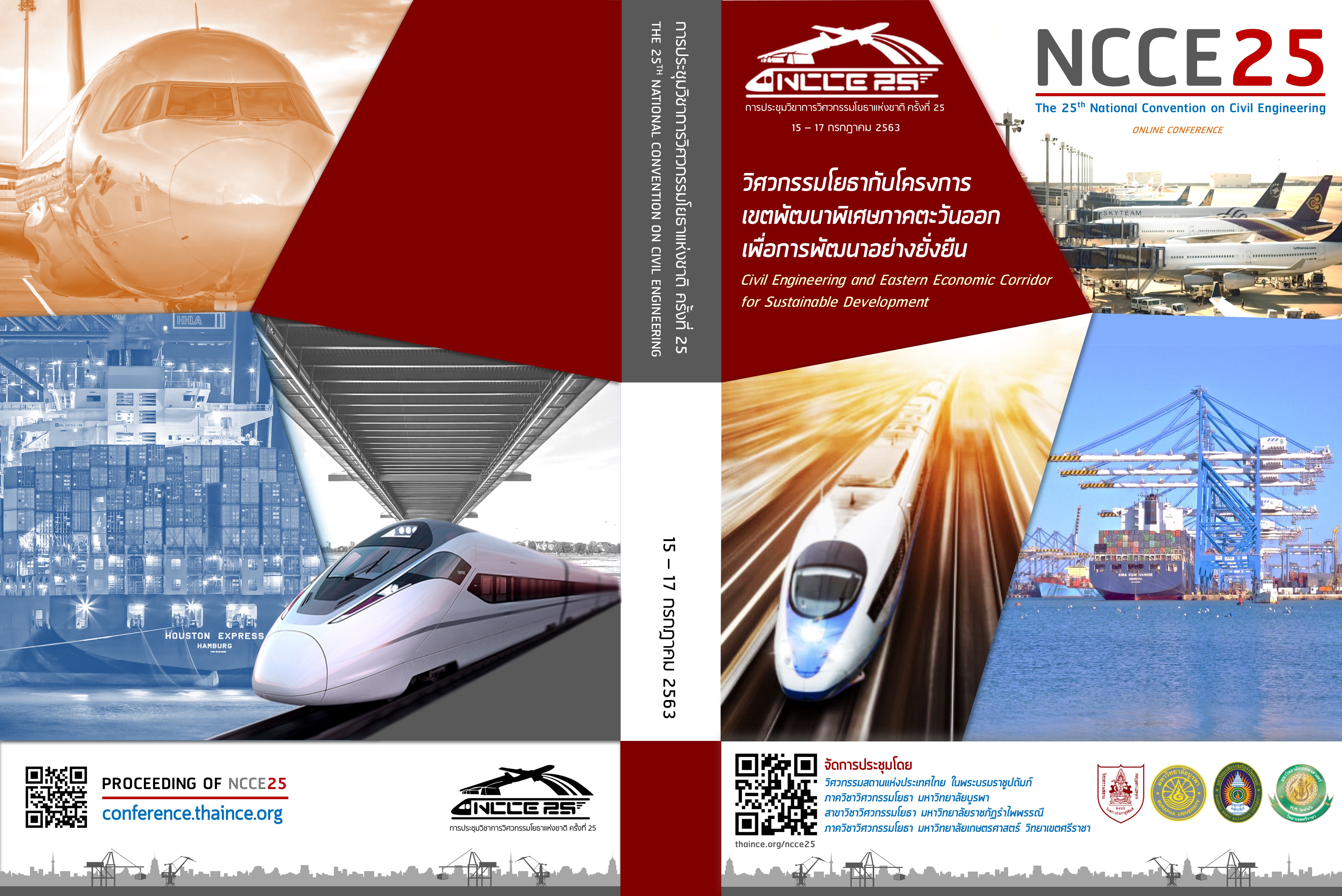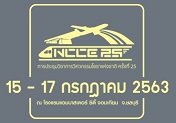Correlation between electrical resistivity and geotechnical engineering properties of soil
Keywords:
resistance, multiple variable regression, graded soil, electrical resistivity, geotechnical engineering propertiesAbstract
The study of soil electrical resistivity in various type of soil, which were lateritic soil and fine sand, which may be affected from the change of soil properties for instance, water content and dry density. Meanwhile, there may be a relationship between the property of the resistivity and the properties of soil. In this study, a resistance test was performed by inputting an electric current from the power supply through a soil sample prepared in a soil box, which samples in this study are a lateritic soil from Thali, Loei, Thailand, and KMUTT sand (sand which passed through the No. 40 sieve and retained on the No. 100 sieve). The compaction tests were also done to receive the maximum dry density and the optimum moisture content then the desired water content and the dry density of the soil sample are controlled in the soil box, while the voltage of the experiment was controlled in a range between 3 and 30 volts. The experiment found that there is a relationship between the water content, the dry density and the electrical resistivity, and the response surface methodology was used to create and analysed the correlation. From the experiment, the resistivity predicted from the regression tend to be reduced proportionally to the increased in the water content and the dry density.
Downloads
Downloads
Published
How to Cite
Issue
Section
License
บทความทั้งหมดที่ได้รับการคัดเลือกให้นำเสนอผลงานในการประชุมวิชาการวิศวกรรมโยธาแห่งชาติ ครั้งที่ 25 นี้ เป็นลิขสิทธิ์ของ วิศวกรรมสถานแห่งประเทศไทย ในพระบรมราชูปถัมภ์



